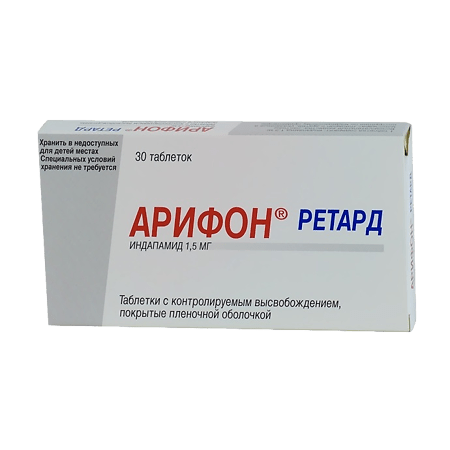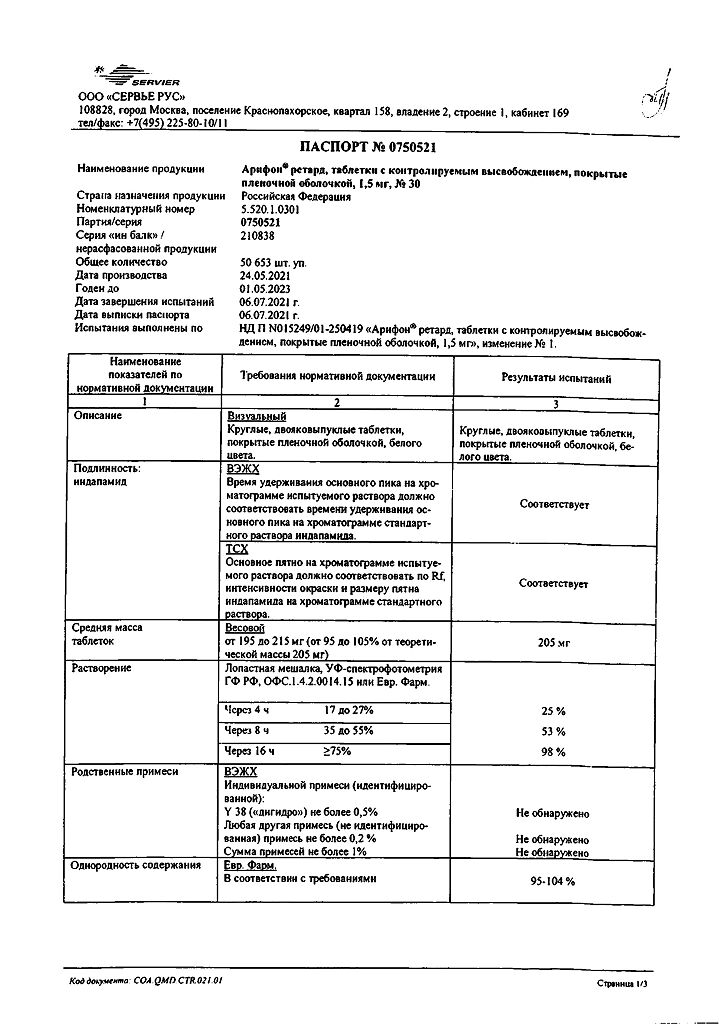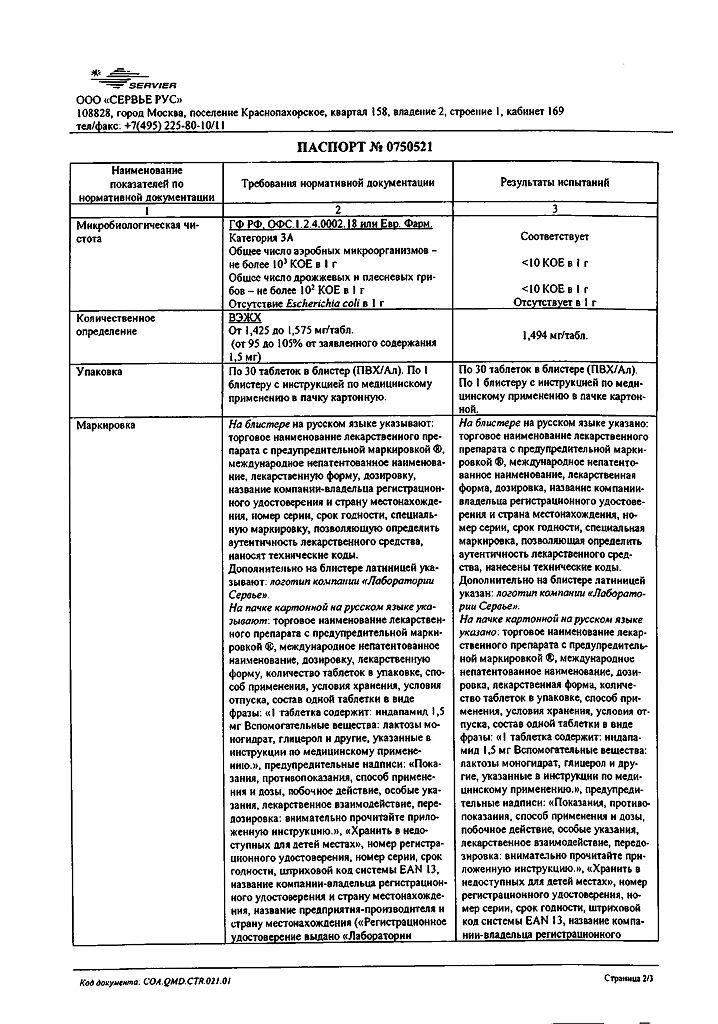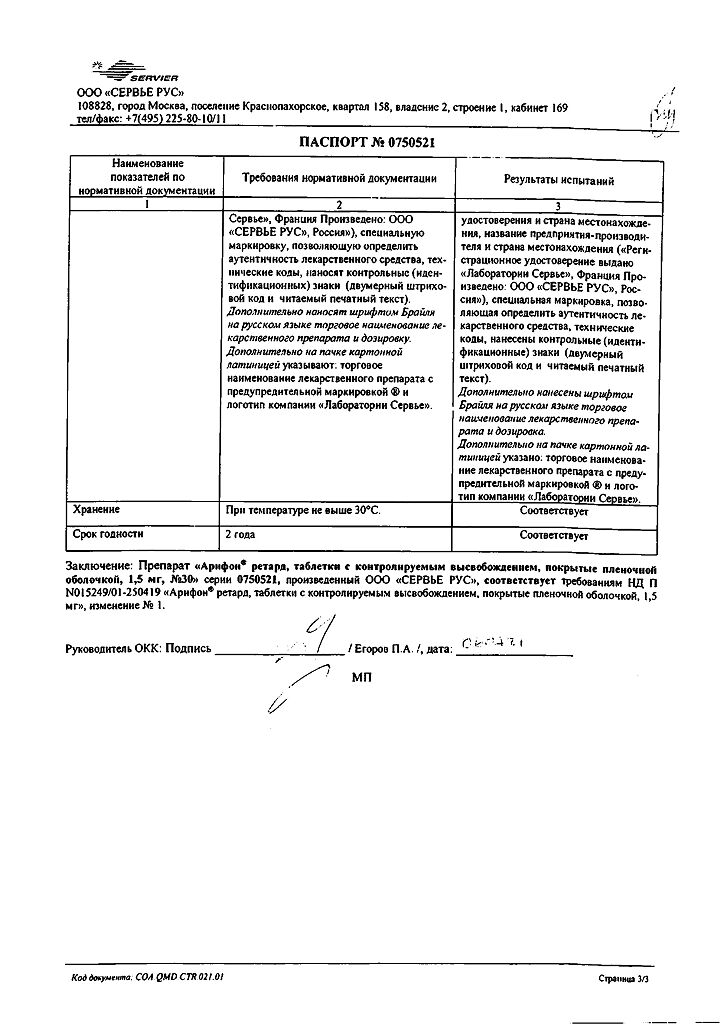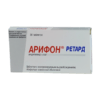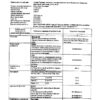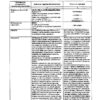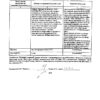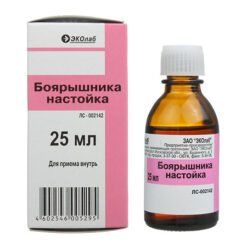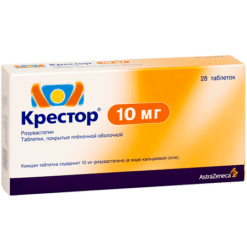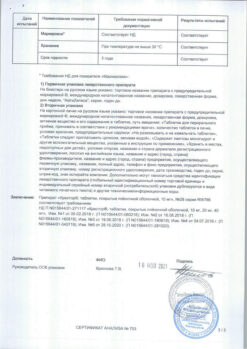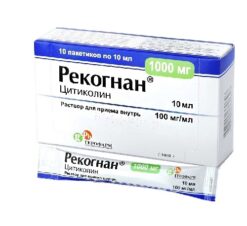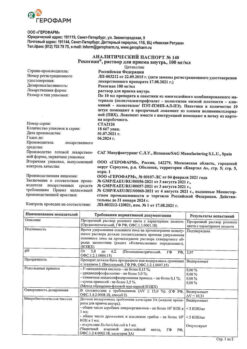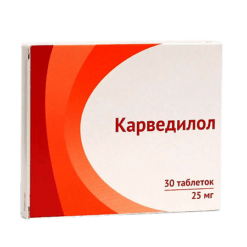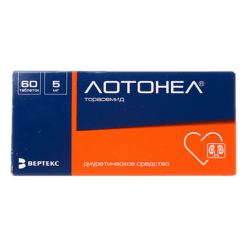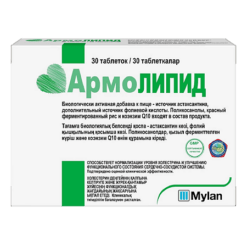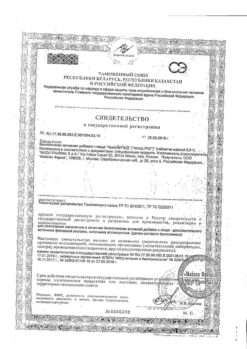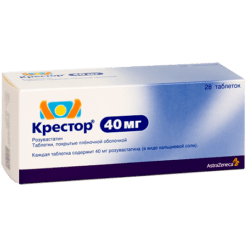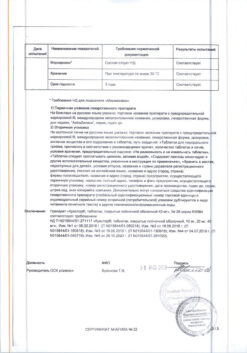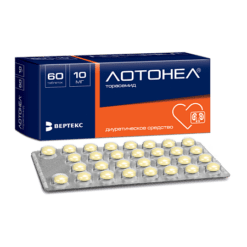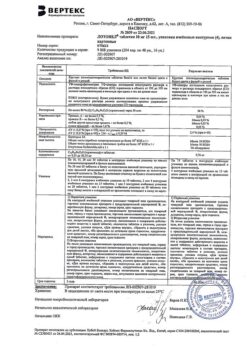No products in the cart.
Arifon retard, 1.5 mg 30 pcs
€5.96 €5.22
Description
Swelling, Blood Pressure, Hypertension (high blood pressure)Arterial hypertension.
Indications
Indications
Arterial hypertension.
Pharmacological effect
Pharmacological effect
Pharmacotherapeutic group: diuretic.
ATX code: C03BA11
Special instructions
Special instructions
Liver dysfunction
When prescribing thiazide and thiazide-like diuretics in patients with impaired liver function, hepatic encephalopathy may develop, especially in the case of electrolyte imbalance. In this case, diuretics should be stopped immediately.
Photosensitivity
Cases of photosensitivity reactions have been reported while taking thiazide and thiazide-like diuretics. If photosensitivity reactions develop while taking the drug, treatment should be discontinued. If it is necessary to continue diuretic therapy, it is recommended to protect the skin from exposure to sunlight or artificial ultraviolet rays.
Content of sodium ions in blood plasma
Before starting treatment, it is necessary to determine the content of sodium ions in the blood plasma. While taking the drug, this indicator should be regularly monitored. All diuretic drugs can cause hyponatremia, sometimes leading to extremely serious consequences. Constant monitoring of the content of sodium ions is necessary, because Initially, a decrease in sodium concentration in the blood plasma may not be accompanied by the appearance of pathological symptoms. The most careful monitoring of sodium ion content is indicated for patients with liver cirrhosis and the elderly.
Content of potassium ions in blood plasma
When treating with thiazide and thiazide-like diuretics, the main risk is a sharp decrease in the level of potassium in the blood plasma and the development of hypokalemia. It is necessary to avoid the risk of developing hypokalemia (<3.4 mmol/l) in patients of the following categories: elderly, debilitated or receiving combined drug therapy with other antiarrhythmic drugs and drugs that can increase the QT interval, patients with cirrhosis, peripheral edema or ascites, coronary artery disease, heart failure. Hypokalemia in these patients enhances the toxic effect of cardiac glycosides and increases the risk of developing arrhythmias. In addition, patients with an increased QT interval are at increased risk, and it does not matter whether this increase is caused by congenital causes or the effect of drugs.Hypokalemia, like bradycardia, is a condition that contributes to the development of severe arrhythmias and, especially, torsade de pointes, which can be fatal. In all the cases described above, it is necessary to regularly monitor the potassium content in the blood plasma. The first measurement of the concentration of potassium ions in the blood must be carried out within the first week from the start of treatment. If hypokalemia occurs, appropriate treatment should be prescribed.Calcium content in blood plasmaIt should be borne in mind that thiazide and thiazide-like diuretics can reduce the excretion of calcium ions by the kidneys, leading to a slight and temporary increase in the concentration of calcium in the blood plasma. Severe hypercalcemia may be a consequence of previously undiagnosed hyperparathyroidism. Diuretics should be discontinued before testing parathyroid function.Blood plasma glucoseIt is necessary to monitor blood glucose levels in patients with diabetes mellitus, especially in the presence of hypokalemia.Uric acidIn patients with gout, the frequency of attacks may increase or the course of gout may worsen.Diuretics and kidney functionThiazide and thiazide-like diuretics are fully effective only in patients with normal or slightly impaired renal function (plasma creatinine in adults below 25 mg/l or 220 µmol/l). In elderly patients, normal plasma creatinine levels are calculated taking into account age, body weight and gender.It should be taken into account that at the beginning of treatment, patients may experience a decrease in glomerular filtration rate due to hypovolemia, which, in turn, is caused by the loss of fluid and sodium ions while taking diuretic drugs. As a result, the concentration of urea and creatinine in the blood plasma may increase. If renal function is not impaired, such temporary functional renal failure, as a rule, passes without consequences, however, with existing renal failure, the patient’s condition may worsen.AthletesIndapamide may give a positive result during doping control in athletes.Impact on the ability to drive vehicles and operate machineryThe action of the substances included in the drug Arifon® retard does not lead to impairment of psychomotor reactions. However, some people may develop different individual reactions in response to lowering blood pressure, especially at the beginning of therapy or when other antihypertensive drugs are added to therapy. In this case, the ability to drive a car or operate other machinery may be reduced.
Active ingredient
Active ingredient
Indapamide
Composition
Composition
1 tablet contains:
Active substance:
indapamide – 1.5 mg;
Excipients:
lactose monohydrate – 124.5 mg;
hypromellose – 64 mg;
magnesium stearate – 1 mg;
povidone – 8.6 mg;
colloidal silicon dioxide anhydrous – 0.4 mg;
Film casing:
glycerol – 0.219 mg;
hypromellose – 3.642 mg;
macrogol 6000 – 0.219 mg;
magnesium stearate – 0.219 mg;
titanium dioxide – 0.701 mg.
Pregnancy
Pregnancy
As a general rule, diuretics should not be prescribed during pregnancy. These drugs should not be used to treat physiological edema during pregnancy.
Diuretics can cause fetoplacental ischemia and lead to impaired fetal development.
Due to the fact that indapamide is excreted in breast milk, it is not recommended to prescribe the drug during breastfeeding.
Contraindications
Contraindications
severe liver dysfunction;
hypokalemia;
severe renal failure (creatinine clearance less than 30 ml/min);
hepatic encephalopathy;
hypersensitivity to indapamide, other sulfonamide derivatives or to any of the excipients.
Due to the fact that the drug contains lactose, Arifon® retard is not recommended for patients with lactose intolerance, galactosemia, or glucose-galactose malabsorption.
With caution: the drug should be prescribed for impaired liver and kidney function, water-electrolyte imbalance, debilitated patients or patients receiving combination therapy with other antiarrhythmic drugs, diabetes mellitus, elevated uric acid levels, hyperparathyroidism, patients with a prolonged QT interval.
Due to the lack of sufficient clinical data, the drug is not recommended for use in children under 18 years of age.
Side Effects
Side Effects
On the part of the skin and subcutaneous fat: hypersensitivity reactions, mainly dermatological, in patients with a predisposition to allergic and asthmatic reactions: often – maculopapular rash; uncommon – hemorrhagic vasculitis; very rarely – angioedema and/or urticaria, toxic epidermal necrolysis, Stevens-Johnson syndrome; unspecified frequency – in patients with an acute form of systemic lupus erythematosus, the course of the disease may worsen. Cases of photosensitivity reactions have been described (see sections “Special instructions” and “Interaction”).
From the circulatory and lymphatic system: very rarely – thrombocytopenia, leukopenia, agranulocytosis, aplastic anemia, hemolytic anemia.
From the side of the central nervous system: rarely – asthenia, headache, paresthesia, vertigo; unspecified frequency – fainting.
From the cardiovascular system: very rarely – arrhythmia, marked decrease in blood pressure; unspecified frequency – pirouette-type arrhythmia (possibly fatal) (see sections “Interaction” and “Special instructions”).
From the digestive system: infrequently – vomiting; rarely – nausea, constipation, dryness of the oral mucosa; very rarely – pancreatitis.
From the urinary system: very rarely – renal failure.
From the liver and biliary tract: very rarely – impaired liver function; unspecified frequency – the possibility of developing hepatic encephalopathy in case of liver failure (see “Contraindications”, “Special instructions”), hepatitis.
Laboratory indicators: unspecified frequency – increase in the QT interval on the ECG, increase in the concentration of uric acid and glucose in the blood: thiazide and thiazide-like diuretics should be used with caution in patients with gout and diabetes mellitus; increased activity of liver transaminases.
Interaction
Interaction
Cyclosporine, tacrolimus. It is possible to increase the creatinine content in the blood plasma without changing the concentration of circulating cyclosporine, even with normal fluid and sodium ion levels.
Corticosteroid drugs, tetracosactide (if administered systemically). Reduced hypotensive effect (retention of fluid and sodium ions as a result of the action of corticosteroids).
Undesirable combination of drugs
Lithium preparations. With the simultaneous use of indapamide and lithium preparations, an increase in the concentration of lithium in the blood plasma may be observed due to a decrease in its excretion, accompanied by the appearance of signs of overdose. If necessary, diuretic drugs can be used in combination with lithium drugs, and the dose of the drugs should be carefully selected, constantly monitoring the lithium content in the blood plasma.
Combination of drugs requiring special attention
Drugs that can cause pirouette arrhythmia:
– class IA antiarrhythmic drugs (quinidine, hydroquinidine, disopyramide);
– class III antiarrhythmic drugs (amiodarone, sotalol, dofetilide, ibutilide);
– some neuroleptics: phenothiazines (chlorpromazine, cyamemazine, levomepromazine, thioridazine, trifluoroperazine), benzamides (amisulpride, sulpiride, sultopride, tiapride), butyrophenones (droperidol, haloperidol);
– others: bepridil, cisapride, difemanil, erythromycin (iv), halofantrine, mizolastine, pentamidine, sparfloxacin, moxifloxacin, astemizole, vincamine (iv).
Increased risk of ventricular arrhythmias, especially pirouette-type arrhythmias (risk factor – hypokalemia).
The level of potassium in the blood plasma should be determined and, if necessary, adjusted before starting combination therapy with indapamide and the above drugs. It is necessary to monitor the patient’s clinical condition, monitor the level of electrolytes in the blood plasma, and ECG indicators.
In patients with hypokalemia, it is necessary to use drugs that do not cause torsade de pointes.
NSAIDs (if administered systemically), including selective COX-2 inhibitors, high doses of salicylates (≥3 g/day). The antihypertensive effect of indapamide may be reduced. With significant fluid loss, acute renal failure may develop (due to decreased glomerular filtration). Patients need to compensate for fluid loss and carefully monitor renal function at the beginning of treatment.
ACE inhibitors. Prescribing ACE inhibitors to patients with a reduced concentration of sodium ions in the blood (especially patients with renal artery stenosis) is accompanied by a risk of sudden arterial hypotension and/or acute renal failure.
Patients with arterial hypertension and possibly reduced levels of sodium ions in the blood plasma due to diuretics should:
– 3 days before starting treatment with an ACE inhibitor, stop taking diuretics. In the future, if necessary, diuretics can be resumed;
– or start ACE inhibitor therapy with low doses, followed by a gradual increase in dose if necessary.
In chronic heart failure, treatment with ACE inhibitors should begin with low doses with a possible preliminary reduction in the doses of diuretics.
In all cases, in the first week of taking ACE inhibitors in patients, it is necessary to monitor renal function (plasma creatinine content).
Other drugs that can cause hypokalemia: amphotericin B (iv), corticosteroids and mineralocorticosteroids (when administered systemically), tetracosactide, laxatives that stimulate intestinal motility. Increased risk of hypokalemia (additive effect).
Constant monitoring of the level of potassium in the blood plasma is necessary, and, if necessary, its correction. Particular attention should be paid to patients simultaneously receiving cardiac glycosides. It is recommended to use laxatives that do not stimulate intestinal motility.
Baclofen. There is an increase in the hypotensive effect.
Patients need to compensate for fluid loss and carefully monitor renal function at the beginning of treatment.
Cardiac glycosides. Hypokalemia enhances the toxic effect of cardiac glycosides.
With the simultaneous use of indapamide and cardiac glycosides, the level of potassium in the blood plasma, ECG parameters should be monitored, and, if necessary, therapy should be adjusted.
Combination of drugs requiring attention
Potassium-sparing diuretics (amiloride, spironolactone, triamterene). Combination therapy with indapamide and potassium-sparing diuretics is advisable in some patients, but the possibility of developing hypokalemia (especially in patients with diabetes mellitus and patients with renal failure) or hyperkalemia cannot be excluded.
It is necessary to monitor the level of potassium in the blood plasma, ECG indicators and, if necessary, adjust therapy.
Metformin. Functional renal failure, which can occur against the background of diuretics, especially loop diuretics, with simultaneous administration of metformin increases the risk of developing lactic acidosis.
Metformin should not be used if creatinine levels exceed 15 mg/L (135 µmol/L) in men and 12 mg/L (110 µmol/L) in women.
Iodinated contrast agents. Dehydration while taking diuretics increases the risk of developing acute renal failure, especially when using high doses of iodinated contrast agents.
Before using iodine-containing contrast agents, patients must compensate for fluid loss.
Tricyclic antidepressants, antipsychotics (neuroleptics). Drugs in these classes enhance the antihypertensive effect of indapamide and increase the risk of orthostatic hypotension (additive effect).
Calcium salts. With simultaneous administration, hypercalcemia may develop due to a decrease in the excretion of calcium ions by the kidneys.
Overdose
Overdose
Indapamide, even in very high concentrations (up to 40 mg, i.e. 27 times more than the therapeutic dose), does not have a toxic effect.
Symptoms of acute drug poisoning are primarily associated with water and electrolyte imbalance (hyponatremia, hypokalemia). Nausea, vomiting, decreased blood pressure, convulsions, dizziness, drowsiness, confusion, polyuria, or oliguria leading to anuria (due to hypovolemia) may also occur.
Treatment: urgent measures aimed at removing the drug from the body: gastric lavage and/or administration of activated charcoal, followed by restoration of normal water and electrolyte balance.
Storage conditions
Storage conditions
At a temperature not exceeding 30 °C
Shelf life
Shelf life
2 years
Manufacturer
Manufacturer
Servier Rus LLC, Russia
Additional information
| Shelf life | 2 years |
|---|---|
| Conditions of storage | At a temperature not exceeding 30 °C |
| Manufacturer | Servier Rus LLC, Russia |
| Medication form | sustained release tablets |
| Brand | Servier Rus LLC |
Related products
Buy Arifon retard, 1.5 mg 30 pcs with delivery to USA, UK, Europe and over 120 other countries.

